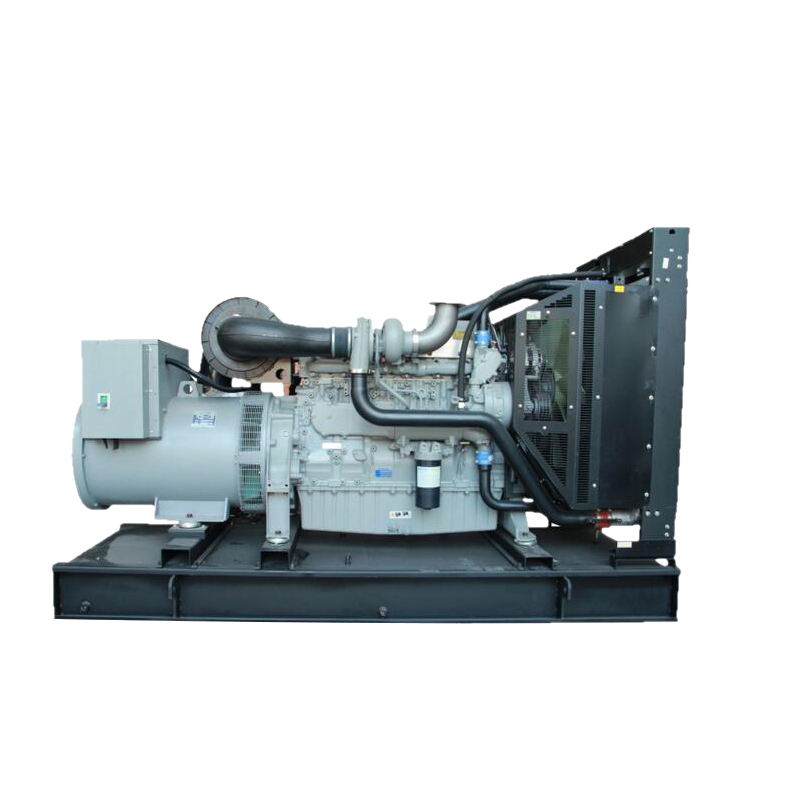
Choosing the right generator can be a daunting task. With various types, sizes, and fuel options available, understanding the core differences is essential. This guide breaks down the three main types of generators – portable, inverter, and standby – to help you find the perfect power solution for your needs. So, what are the 3 types of generators? Let's dive in.
Portable Generators: Power on the Go
Portable generators are the workhorses of the generator world, known for their versatility and mobility. These compact powerhouses are typically gasoline-powered and offer a convenient solution for temporary power needs. Imagine powering your RV during a camping trip, running essential tools at a construction site, or providing backup power during a short-term outage. Portable generators excel in these scenarios. They are relatively affordable and come in a wide range of power outputs, making them suitable for diverse applications. However, they tend to be noisier than other generator types and are not designed for continuous operation.
Inverter Generators: Clean and Quiet Power
If noise levels and fuel efficiency are top priorities, inverter generators are an excellent choice. These generators utilize advanced electronic circuitry to produce clean, stable power – ideal for sensitive electronic devices like laptops, smartphones, and even some medical equipment. Unlike conventional portable generators, inverter generators adjust their engine speed based on the power demand, resulting in significant fuel savings and quieter operation. This makes them perfect for camping, tailgating, and other recreational activities where noise pollution is a concern. They are also a popular choice for portable generator for home use during shorter power outages. While they offer cleaner power and increased efficiency, they typically come at a higher price point than comparable portable generators.
Standby Generators: Automatic Backup Power for Your Home
When it comes to whole-house backup power, standby generators are the gold standard. These permanently installed units automatically kick in within seconds of a power outage, providing seamless power to your entire home or selected circuits. They are typically fueled by propane or natural gas, eliminating the need to refuel gasoline-powered portable generators. Standby generators offer peace of mind during extended outages, ensuring your home remains comfortable and functional. They are a significant investment upfront, but the convenience and reliability they offer make them a worthwhile investment for homeowners in areas prone to power disruptions. What are the 3 types of generators best suited for protecting your home during prolonged outages? Standby generators are undoubtedly the answer.
Choosing the Right Generator: Factors to Consider
Selecting the right generator involves considering your specific power needs, budget, and intended use. What wattage do you require? Which fuel type is most convenient? How important is portability? These are crucial questions to ask yourself.
Understanding Wattage Requirements
Calculating your wattage needs is the first step. Add up the wattage of all the appliances and devices you plan to run simultaneously. Consider both starting wattage (the initial surge of power required to start a motor) and running wattage (the power needed to keep the device operating). This calculation will help you determine the appropriate generator size for your needs. Portable generators for RV use, for instance, may require higher wattage than one needed for powering a few small appliances during a power outage.
Fuel Type Considerations
Gasoline, propane, and natural gas are the most common generator fuel types. Each has its advantages and disadvantages. Gasoline is readily available but requires regular refueling and has a limited shelf life. Propane is a clean-burning fuel with a longer shelf life but requires larger storage tanks. Natural gas offers the convenience of a continuous fuel supply but requires professional installation for standby generators.
Noise Levels and Other Features
Noise levels, runtime, and additional features like remote starting and automatic transfer switches also play a role in your decision. Inverter generators are generally quieter than conventional portable generators. Runtime varies depending on the fuel tank capacity and load. Automatic transfer switches automatically connect the generator to your home's electrical system when a power outage is detected, making standby generators a convenient and reliable option.
Maintaining Your Generator: Essential Tips
Regardless of the type of generator you choose, regular maintenance is essential for optimal performance and longevity. This includes checking oil levels, changing air filters, and inspecting spark plugs. Following the manufacturer's recommended maintenance schedule will ensure your generator is ready to provide power when you need it most.
Are Generators Worth the Investment?
For many, a generator is more than just a convenience; it's a necessity. Whether you need portable power for recreational activities or reliable backup power for your home during emergencies, understanding the different types of generators available empowers you to make an informed decision. The initial cost of a generator can vary greatly depending on the type and size, but the peace of mind and protection it provides can be invaluable.
Next Steps: Finding Your Perfect Generator
Now that you understand the 3 types of generators and their key features, take some time to assess your specific needs. Browse online reviews, compare models, and visit local retailers to get hands-on experience. By carefully considering your power requirements and budget, you can choose the perfect generator to keep your lights on and your devices powered, no matter the situation.






